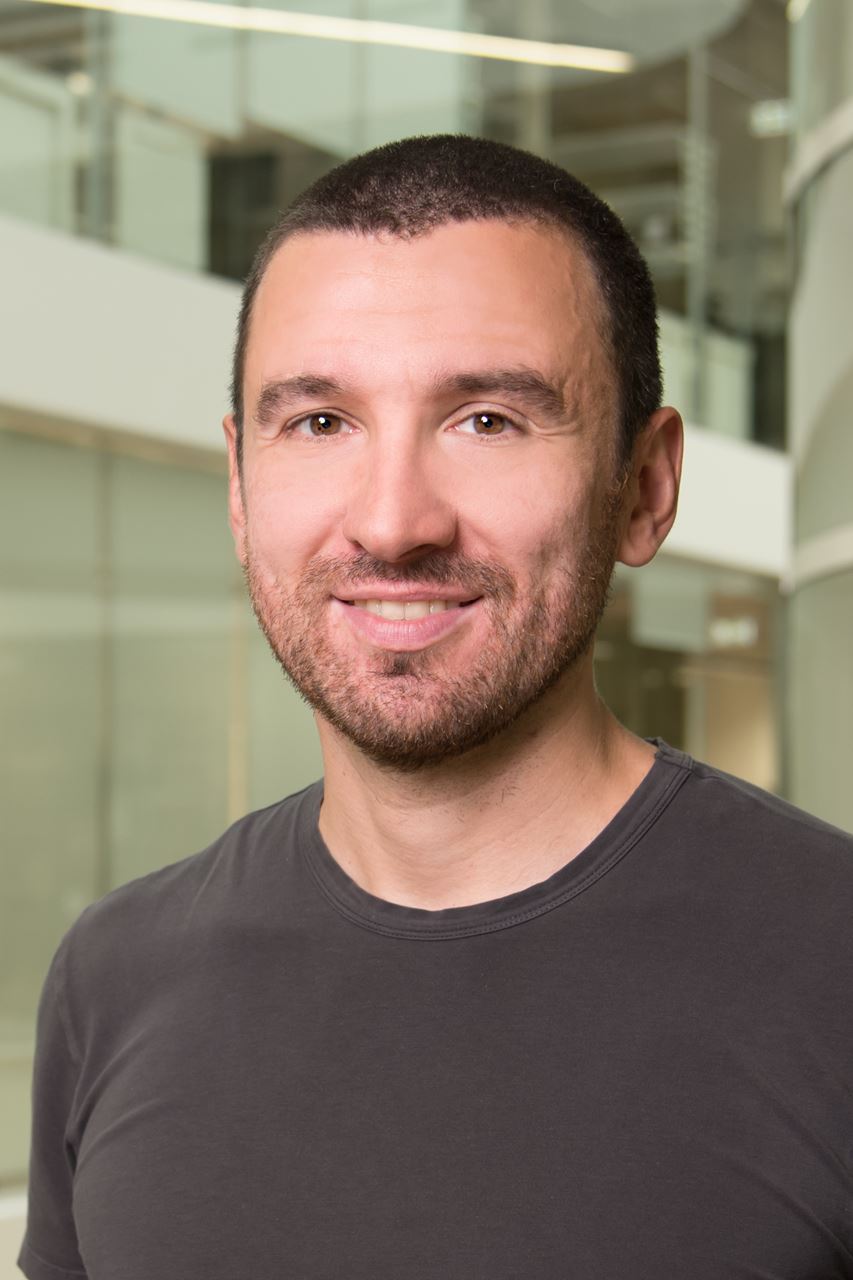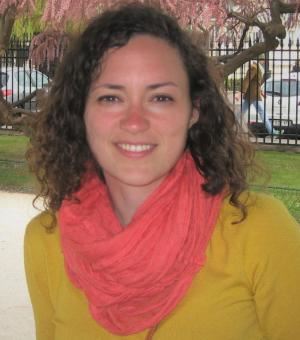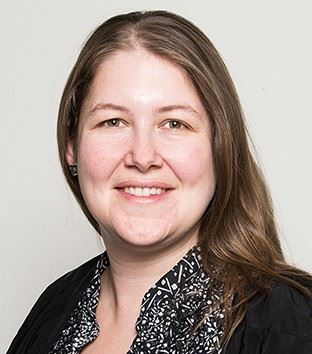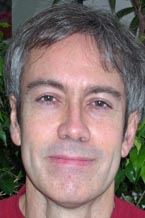- Home
- Meetings
- 2019 in Zurich
- Program 2019
Keynote speakers
| Prof. Dario Valenzano, Max Planck Institute for Biology of Ageing, Germany. African killifishes shed light on the genomic basis of life history trait evolution in vertebrates. |
| Prof. Kayla King, University of Oxford, UK. Protectors vs. killers: microbes within the host as drivers of pathogen evolution. |
| Prof. Verena Schünemann, University of Zurich, Switzerland. Ancient DNA and pathogens: uncovering the past of human diseases. |
| Prof. Bernard J. Crespi, Simon Fraser University, Canada. How evolutionary biology can frame a unified theory for understanding human mental illness. |
Two prize winners will give plenary talks
- G.C Williams Prize winner: Dr. Jessica Marie Hoffman: Is antagonistic pleiotropy ubiquitous in aging biology?
- Gilbert Omenn Prize winner: Dr. Roderich Römhild: Hysteresis treatments: Exploiting cellular memory to prevent resistance evolution
Symposia
The Normal and the Pathological: Paul Griffiths
What distinguishes the normal from the pathological? An obvious approach is to appeal to design by natural selection – genes, bodies or behaviours are in a pathological state when they are unable to perform their adaptive functions, either because of intrinsic damage or because of abnormal environmental conditions. It has long been recognised in evolutionary medicine that any simple version of this approach faces major objections.
In the philosophy of medicine, a long period of scepticism has given way to revived interest in using evolutionary biology to distinguish the normal from the pathological. By attending to the details of contemporary evolutionary theory and examining how evolutionary ideas are actually used in biomedical research, it is argued, we can obtain deep, and sometimes transformative insights into what constitutes health and illness. There has also been a significant methodological shift within philosophy of medicine from the analysis of concepts (‘defining disease’) to seeing health and illness as natural phenomena whose nature we can investigate. This symposium brings together some of the leading authors in these debates to examine the prospects and problems for a genuinely evolutionary understanding of the distinction between the normal and the pathological.
Translational and clinical applications of evolutionary medicine: Nicole Bender
Translational medicine is a field of growing interest in medical research. The bench-to-bedside concept aims to connect basic research in medicine with applications in the clinic. Translational medicine can significantly benefit from a complementary evolutionary angle, but many remain sceptical to how relevant it is to ask evolutionary questions in this new field. The present symposium will unite leading researchers in the field of translational evolutionary medicine with clinicians and public health practitioners to explore and prioritize topics of particular interest at the intersection of evolutionary and translational medicine. Questions to be addressed are: which fields of clinical medicine and public health are best suited for the application of evolutionary logic? Where do we stand with translational efforts that would be amenable to evolutionary thinking? What are the main barriers for translating evolutionary concepts into clinical applications and how can they be overcome?
Human Animal Health: Barbara Natterson-Horowitz and Nicole Bender
Human medical research intersects with many other fields including veterinary medicine, agriculture, and ecology. There are many examples of collaborations between these fields that shape our understanding of infectious diseases, cancer, and autoimmune disorders, to name a few. Bringing these fields together for problem-focused collaboration is crucial. One Health offers a model for this approach. The symposium will bring together leaders in One Health to explore common research areas relevant to human medicine, veterinary medicine, and agriculture/ecology. An evolutionary framework for connecting these fields will be offered. Questions to be addressed will include: What are the most relevant fields to enhance our understanding of diseases of humans and non-human animals? Where are the opportunities and obstacles? What are the most relevant barriers and how do we overcome them?
How does the microbiome affect the brain to moderate neurological disease risk and aetiology? :Molly Fox
The relationship between humans and the microorganisms that live in our bodies is a delicate balance that may be influenced by perturbations in a person’s physical and social environment, and the disturbance of this balance may manifest in dysregulation across many physiological systems. We will present a series of talks by physicians, anthropologists, biologists, and psychologists about the many—and often unexpected—ways that symbiotic microbial activity affects our minds, behaviours, and risk of neuropathies. This symposium offers an evolutionary perspective on processes across the lifespan, across generations, and across human history, with discussions of microbial exposures ranging from air pollution to kombucha, discussions of biomechanisms ranging from inflammation to energy metabolism, and discussions of neuropathies ranging from mood disorders to dementia. We will present the results of cutting-edge laboratory research with rodents and humans, as well as theoretical syntheses that provide a roadmap of how the microbiome fits into the framework of evolutionary psychiatry.
Using evidence from the learning sciences to develop effective evolutionary medicine resources: Jay Labov
Members of ISEMPH’s Education Committee are seeking to coordinate the development of education resources that pre-college, undergraduate, and medical school faculty can use to reinforce concepts related to evolutionary medicine. The ISEMPH website lists such resources (https://isemph.org/EvMedEd). However, an important issue for resource developers is to find ways to make their contributions maximally effective for a spectrum of different kinds of educators. This two-hour workshop will explore ways to improve the quality and value of evolutionary resources based on emerging evidence about how people learn. Approximately half of the workshop will be used to provide an overview of emerging research on human learning and explore a process called “backward design,” which focuses on the importance of emphasizing learning outcomes and measuring whether learners have mastered the content and skills desired. The remainder of the workshop will allow participants to prepare outlines for various types of resources they may wish to develop or restructure utilizing guidelines from CourseSource (https://www.coursesource.org/), an education database in the life sciences that emphasizes active learning approaches. An important part of the discussion will focus on how resources which are developed can be useful across the globe.
Palaeopathology and Evolutionary Medicine: Kimberley Plomp, Gillian Bentley, Charlotte Roberts & Sarah Elton
Despite the growth of Evolutionary Medicine (EM) in recent years, palaeopathology has been less visible than other areas. This issue remains despite the ability of palaeopathology to provide direct insight into the appearance, prevalence, manifestations, and impact of health problems over thousands of years of human history and prehistory. Palaeopathology offers unique opportunities to investigate many questions of interest to EM theorists and practitioners using a range of bioarchaeological methods grounded in relevant evolutionary theory. The information gained by studying archaeological skeletal remains may help clinical practitioners and researchers appreciate how and why certain diseases appeared, evolved, changed or even disappeared. Taking a deep time, big picture approach, palaeopathology may also potentially help identify possible aetiological factors that can be difficult to appreciate in smaller, more locally confined clinical studies. Considering this, the present Symposium has been designed to highlight the synergy between EM and palaeopathology and to show the potential benefits of integrating the two fields by presenting papers that merge the theoretical and methodological aspects of palaeopathology with those of evolutionary medicine.
Pre-conference workshop on oxytocin and social disorders:
from evolutionary perspectives to clinical applications
Aug 12 (afternoon) and Aug 13 (morning)
Oxytocin has been implicated in social behavior in various species and contexts, ranging from maternal care to intergroup conflict. Oxytocin also seems to be dysregulated in a number of social disorders and psychopathologies, such as autism, schizophrenia, or personality disorders, prompting research into its potential therapeutic use. This workshop brings together a wide range of researchers, from those studying oxytocin’s normal functioning in naturalistic contexts to others doing applied work with patients, with the goal of better understanding oxytocin’s evolved functions and clinical applications.
Confirmed participants:
Dr. Elissar Andari (Emory University)
Dr. Richard Bethlehem (University of Cambridge)
Prof. Dr. Bernard J. Crespi (Simon Fraser University)
Dr. Nicholas M. Grebe (Duke University)
Prof. Dr. James Roney (University of California Santa Barbara)
Prof. Dr. Simone Shamay-Tsoory (University of Haifa)
Prof. Dr. Kerstin Uvnäs Moberg (University of Skövde, emerita)
If you are interested in attending this pre-conference workshop, please send an email to the organizer, Prof. Dr. Adrian Jaeggi, briefly describing your background and reason for being interested in the workshop. Slots are limited and will be filled with priority given to researchers and students with closely-related interests.
Social activities
- Tuesday August 13, afternoon: Individual visit of several museums in the near of the University main building, for example the museum of wax moulages https://www.moulagen.uzh.ch/en.html, the zoological museum https://www.zm.uzh.ch/en.html, or the anthropological museum https://www.uzh.ch/cmsssl/en/outreach/museums/anthropologisches-museum.html.
- Tuesday August 13, evening: Welcome reception with bratwurst and beer (and vegetarian alternatives) on the University main building terrace
- Wednesday August 14, evening: Make your own Swiss chocolate! Chocolate factory on the University main building terrace
- Thursday August 15, evening: Conference Dinner: Swiss cheese evening: try the famous Swiss Fondue, the melted cheese dish. Alternatives will be available for non-cheese eaters
- Friday August 16, evening: Farewell Dinner on the University Tower with a nice view over the city
- Friday August 16, late evening: Guided night city tour
- Saturday August 17, all day: Individual excursions in the surroundings of Zurich. Please visit the Zurich Tourism website https://www.zuerich.com/en.
Further activities include:
- PhD students Meet and Greet: there will be a special meet and greet event for delegates PhD students with PhD students from the University of Zurich. More information will follow.
Showcase exhibition at the conference: the museum group of the Institute of Evolutionary Medicine of Zurich will exhibit part of its museum collection and wax moulages about small pox in a showcase at the conference patio.
- Museum of wax moulages guided tour: Friday August 16 in the afternoon there will be a guided tour at the museum of wax moulages about small pox https://www.moulagen.uzh.ch/en.html. The number of participants is limited. A list for registration will be available at the registration desk, first come first serve.



